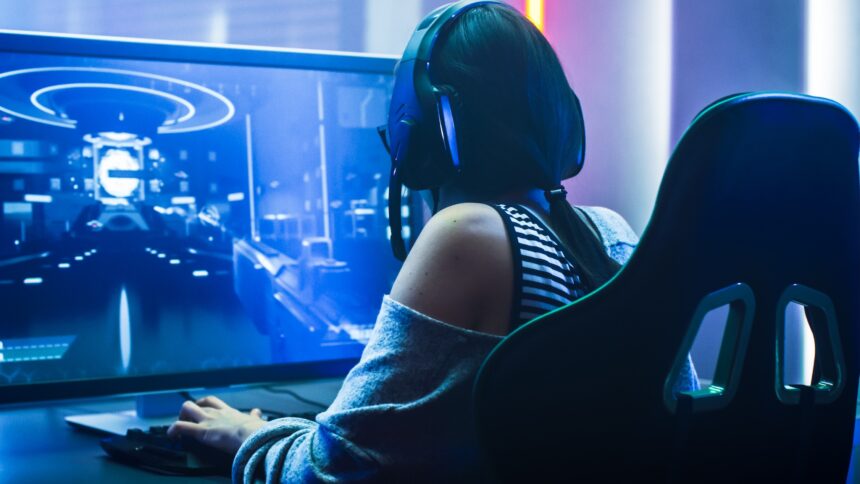By Mandy Bullock
Humans love to have fun. We seek out things that make us feel good and spend our free time indulging in these things. Media is a major part of our lives and provides us with a sense of escape from the stress of our day-to-day. Whether it’s superhero movies, sporting events, or live-action role-playing, we all have our preferred media that we connect with. In the US today, 61% of the population reports playing video games for at least one hour every week, while 19% of the population lists board games or cards as a hobby. When it comes to television and movies, Americans are estimated to watch nearly three hours of television a day.
Technology and media can offer us insight into who we are as people by exploring what we are drawn to and why we feel drawn to it. Shared media has long been a connecting point for humans, and the field of psychology is now further exploring its use in the therapeutic relationship. One way we have begun to do so is with Josué Cardona’s work and the development of Geek Therapy.
What is Geek Therapy?
Most people have never heard of Geek Therapy. Count me as one of them, until I discovered Cardona’s work. I have been a gamer for a long time now and have used gaming as a form of relaxation, connection, and self-care. I also have an embarrassingly long list of TV shows and movies I have watched, sometimes repeatedly. As one might imagine, I was over the moon when I realized that using gaming and/or popular media is a legitimate form of therapy. Through Cardona’s work, I learned that Geek therapy is a therapeutic model and theory that utilizes one’s natural connection to media, games, characters, and other forms of entertainment to gain a deeper insight and understanding of the client and their ways of navigating life’s difficulties.
Their model is simple: “affinity + resonance = understanding”
The hope is that, provided with a comfortable and familiar medium (media) to explore themselves through, clients will be able to make meaning of their emotions and thoughts with increased insight and self-awareness. For example, clients may use their favorite game or movie characters to explore their own strengths or to process certain situations or stressors in their lives. It is also a great tool for building rapport and connecting naturally over shared interests.
Do you have to be a geek to participate in Geek Therapy?
Geek culture is defined as a space for enthusiasts that often associate with less “mainstream” media sources. Historically, this has included fans of science fiction, anime, and video games; however, with the shift of accessibility to these media, engagement in them has increased, changing the idea of what it means to be “geek”.
Therefore, Geek Therapy aims to provide an open space for anyone to discuss media that is important to them, from Fortnite to Dungeons & Dragons to fans of young-adult fantasy novels. One does not need to share the same interest as their client to engage in a meaningful conversation; instead, it may be useful to think of Geek Therapy as an on-ramp for clients to discuss subjects that may not feel therapeutically relevant. Therefore, it is my belief that anyone who relates to the concept of “geek culture” or anyone who engages in media that they love and enjoy could potentially benefit from Geek Therapy.
What does this look like in the therapy room?
The ways this model can be applied in therapy are extremely broad, and for good reason: everyone relates to different pieces of media, and everyone experiences their media in a unique way. It all has a place here. Geek Therapy aims to provide a vast, open, and diverse space in which anyone can “find their niche.” There are a multitude of worksheets organized by media title that can be used in session, as well as readily accessible and free information about their theory and training. Cardona aims to make their resources and community easily accessible and understandable for both clinicians and clients, and invites anyone interested to explore their website and training materials. The link for the Geek Therapy website and other resources will be posted below.
Inviting Authenticity Through Geek Therapy
Geek culture is becoming increasingly popular amongst Americans as access to online media and games becomes more prevalent. This theory provides a good avenue for connection, relationality, and self-exploration. My personal takeaway from working with this theory over the last year has been that we can always create more therapeutic space for people to live into their authentic selves. Even if one is not certified in Geek Therapy, we can still invite clients to explore themselves by deepening their understanding of the things they connect with and why. The Geek Therapy model and resources are one way the field of psychology and mental health can begin to build another kind of therapeutic space for others and to invite more authenticity and relatability into the room I encourage us all to speak to our clients, coworkers, or friends about their interests and be curious about what people are devoting their free time to. I further encourage us all to embrace our personal interests and to be open and curious about why we are drawn to them.
If you’re interested in bringing in your favorite movies, games, or characters into your therapy journey, I encourage you to discuss how this could be integrated into your therapeutic space or personal life.
Mandy Bullock (she/her) is a doctoral student pursuing her PsyD at The Chicago School for Professional Psychology.
Additional resources:
Geek Therapy website: https://geektherapy.org/
Geek Therapy Youtube channel: https://www.youtube.com/@Geektherapy
Geek Therapy Discussion Forum: https://forum.geektherapy.org/

